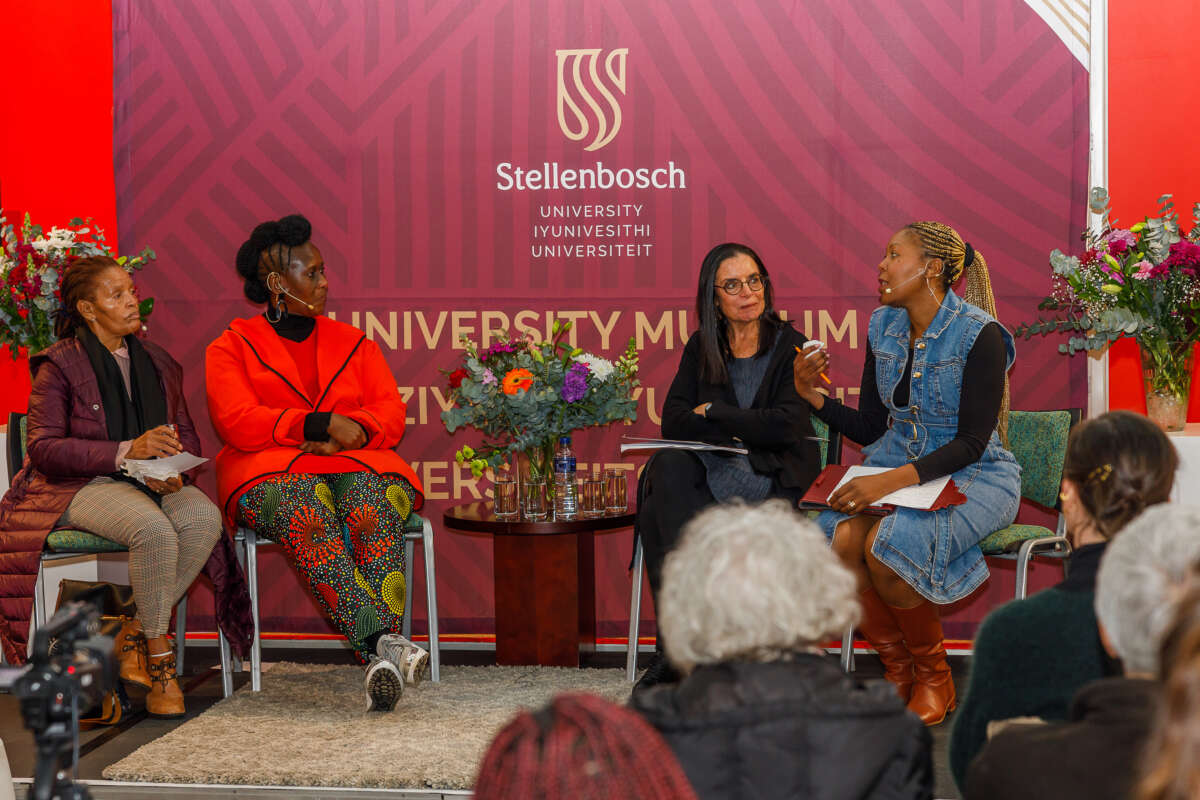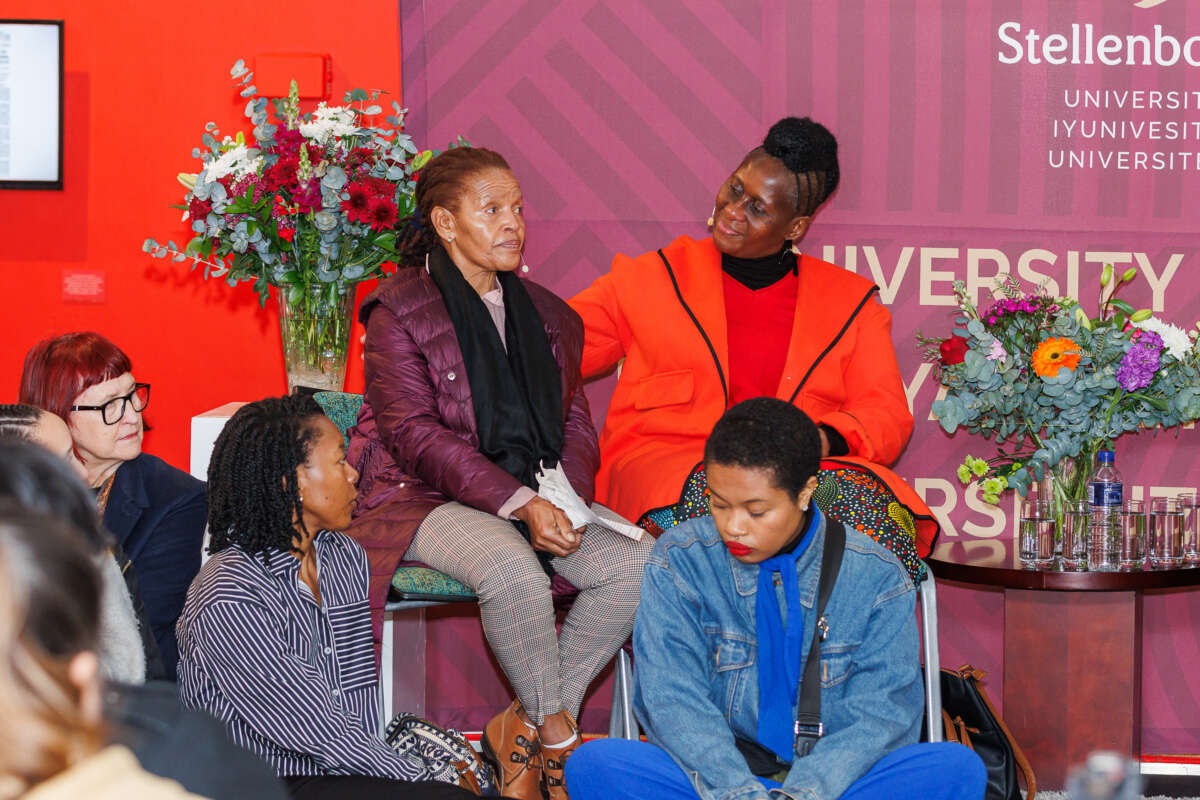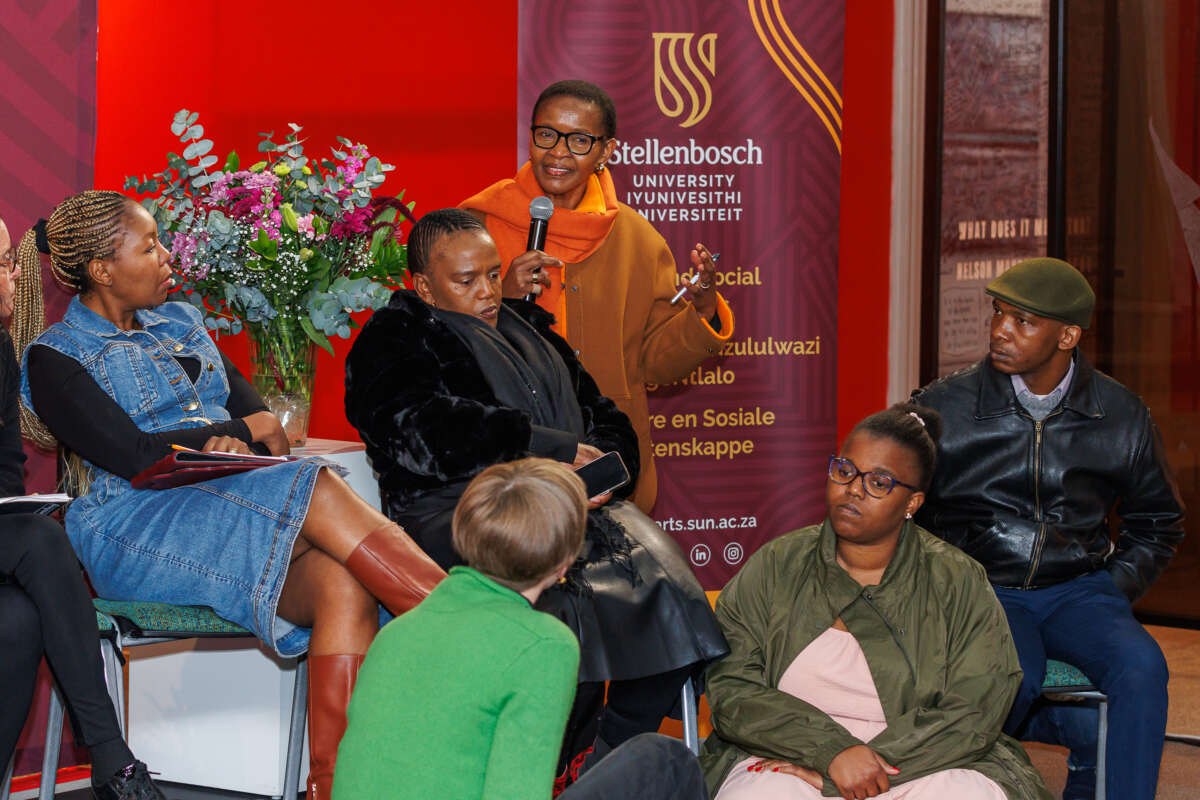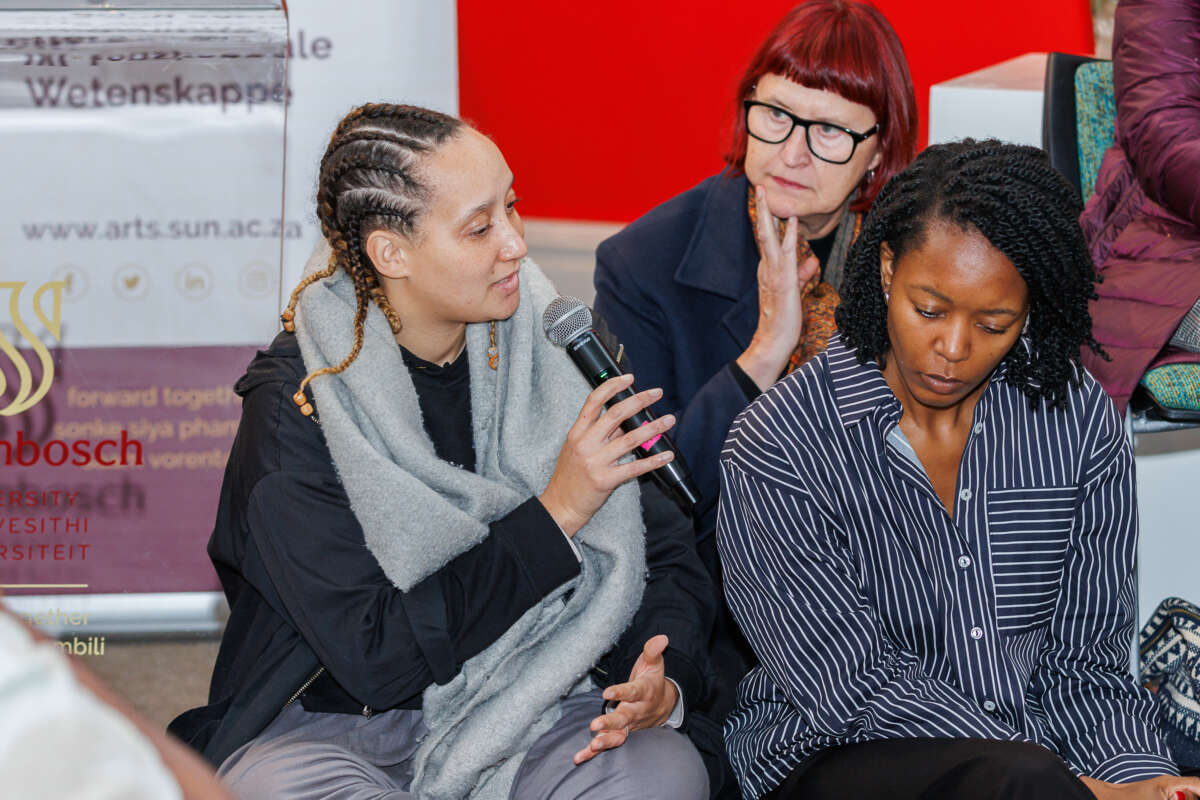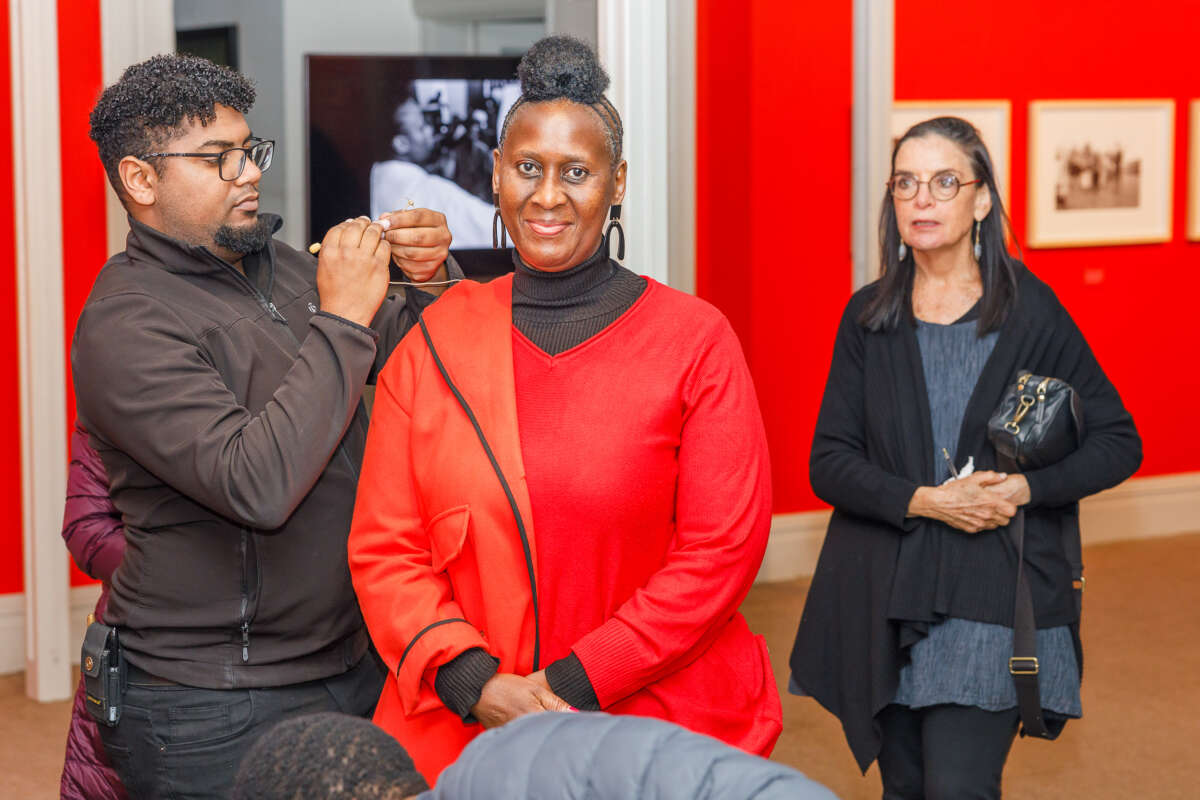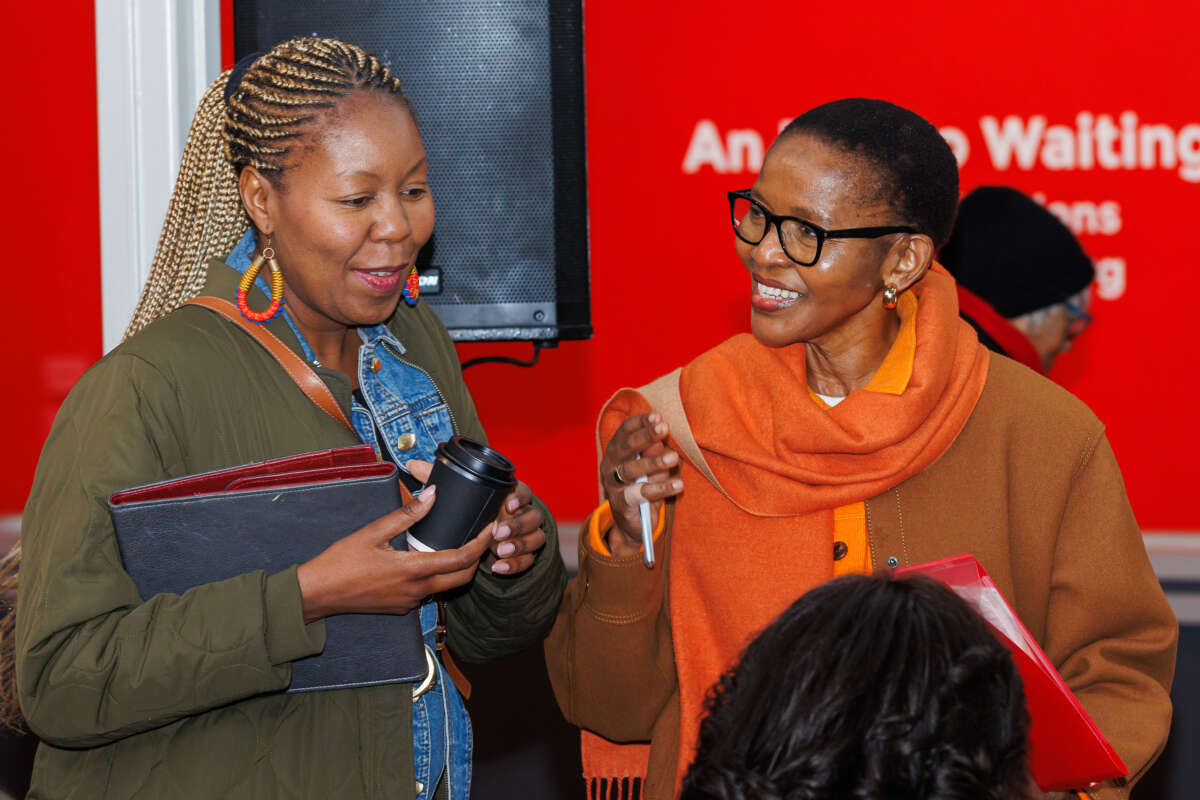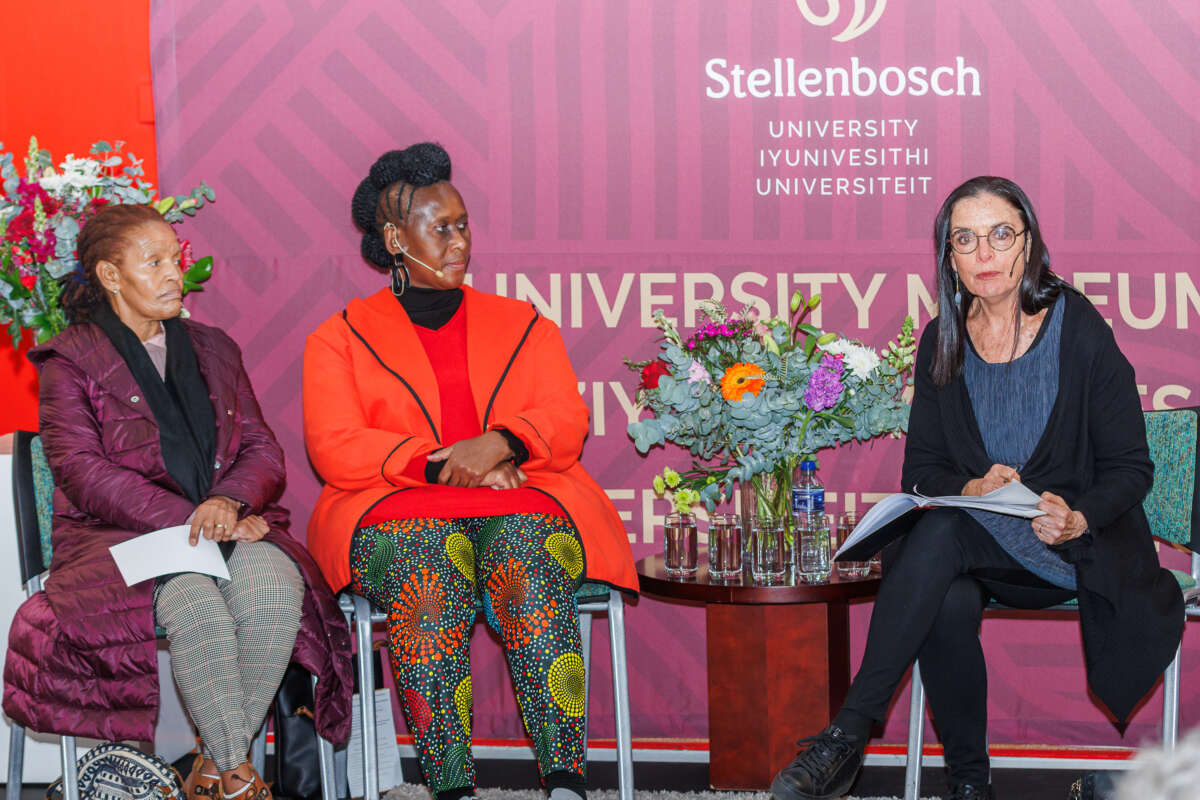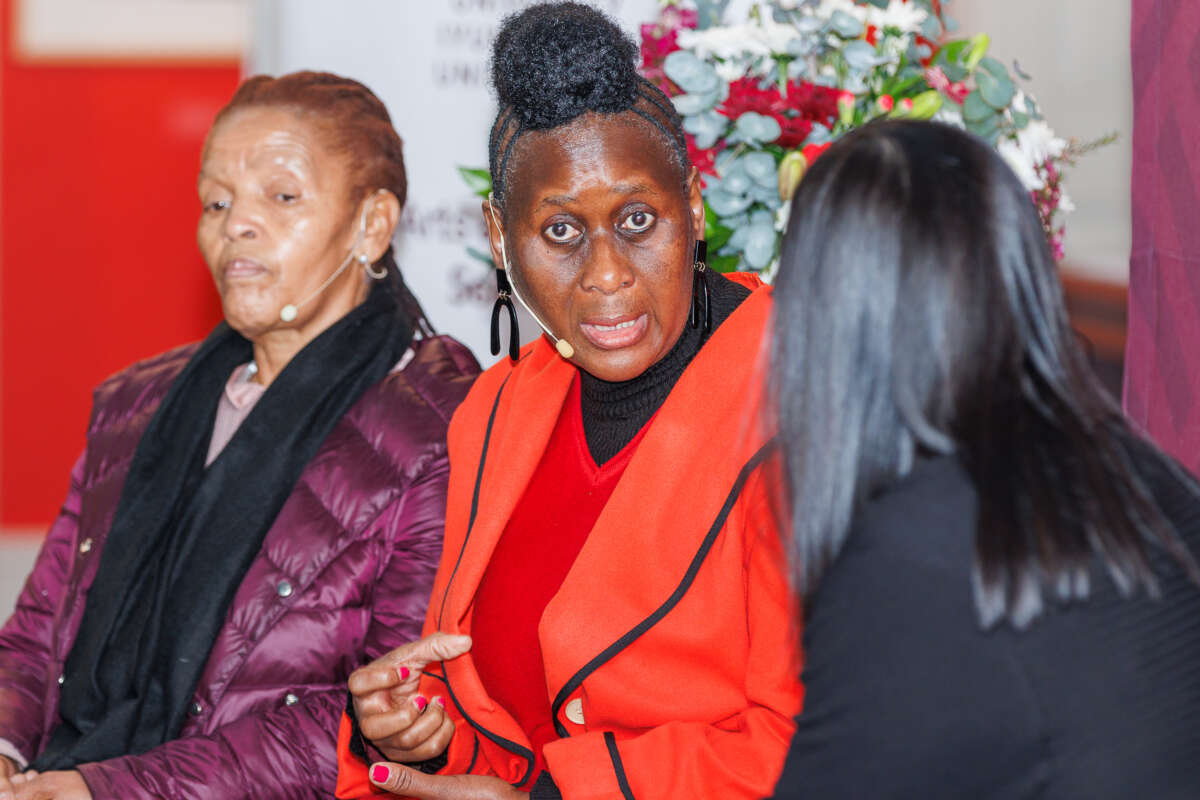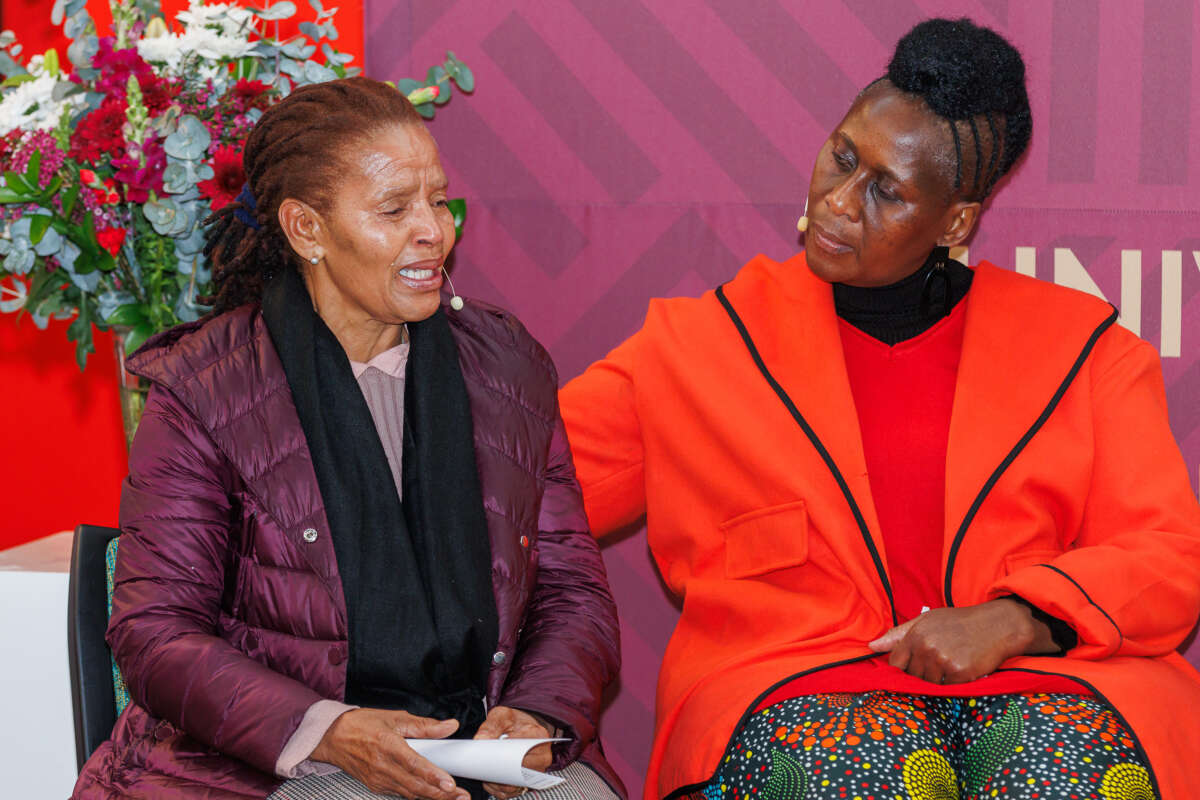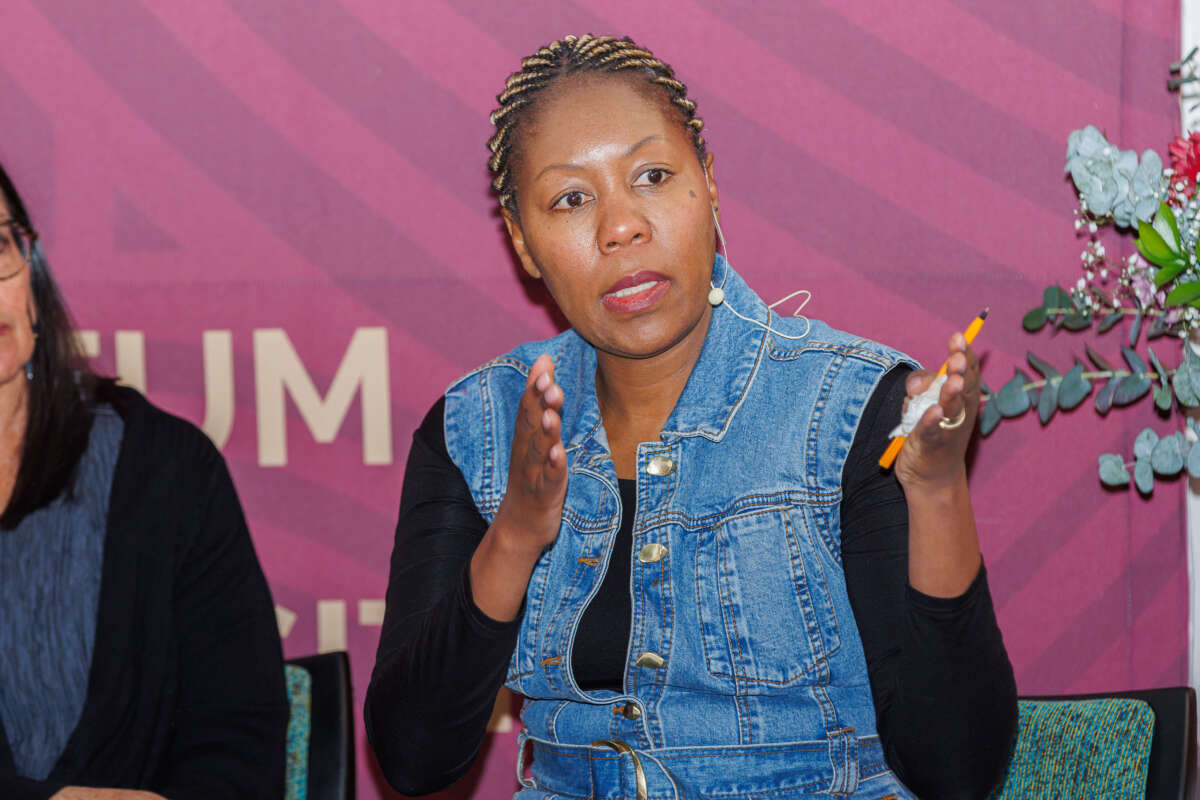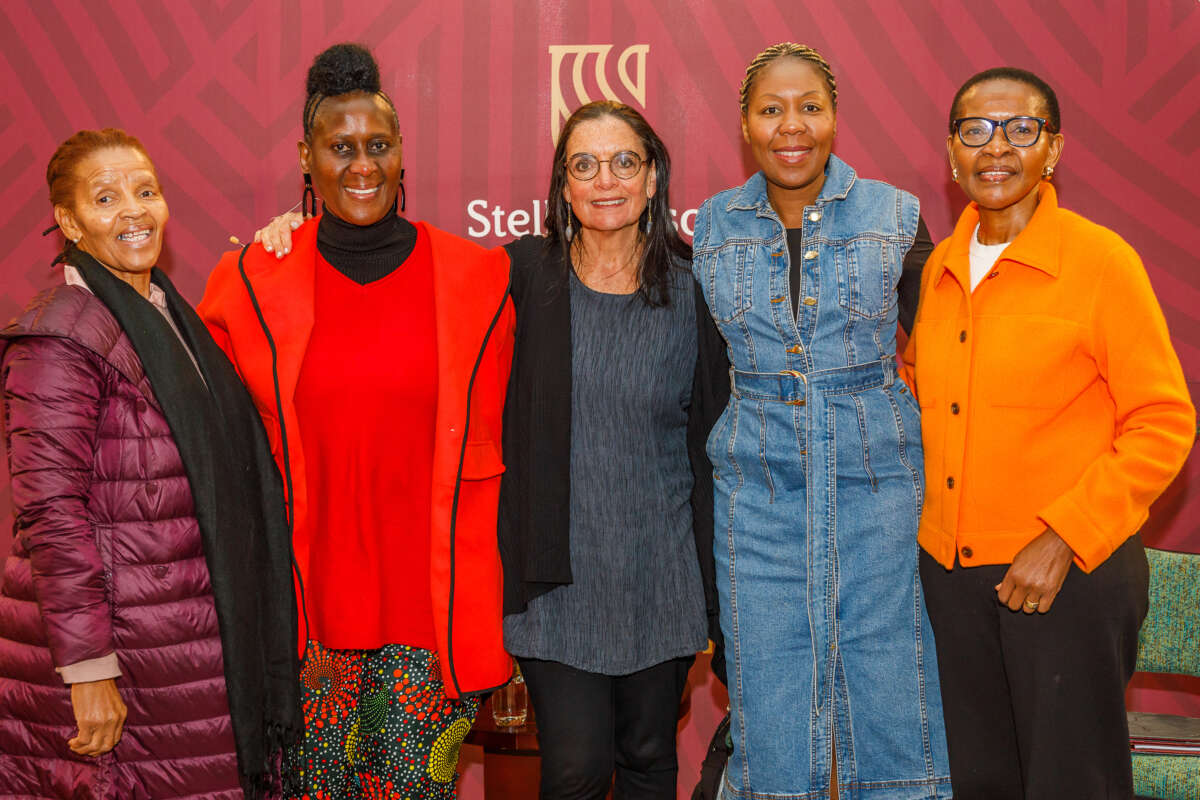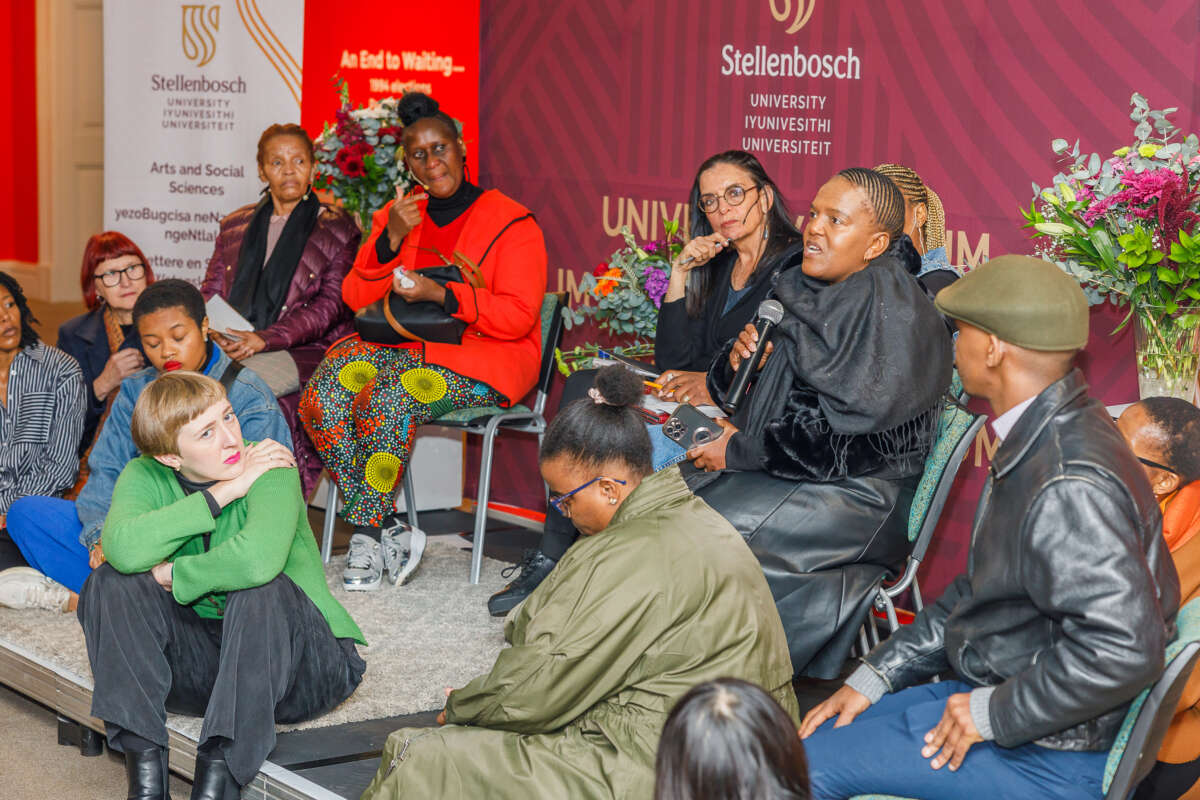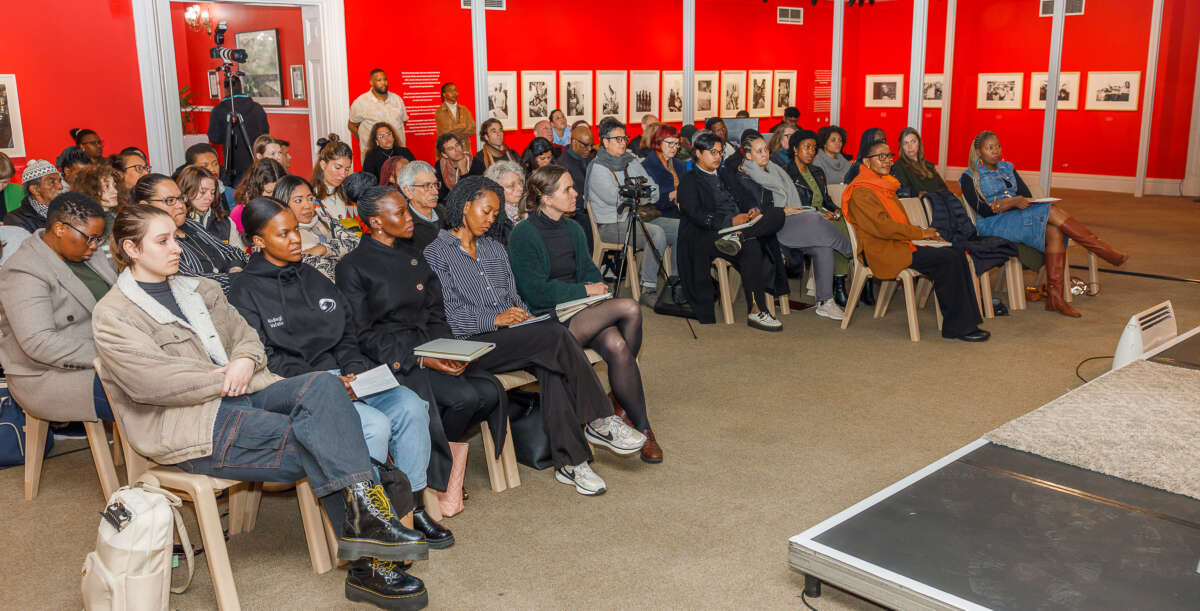The recent event, held at Stellenbosch University Museum, was a profound and moving reflection on South Africa’s journey through the Truth and Reconciliation Commission (TRC) and 30 years of democracy. It focused on the stories of Nomonde Calata and Seipati Mlangeni, widows of Bheki Mlangeni and Fort Calata, both of whom were brutally murdered by apartheid security forces. The conversation, led by Prof. Tamar Garb, delved deep into the connection between trauma, history, and the body as a living archive. Prof. Pumla Gobodo-Madikizela opened the event by acknowledging the significance of having such a discussion in a space that visually echoes South Africa’s complex history. She emphasized the ongoing importance of these conversations, particularly through the experiences of women like Nomonde and Seipati, who have carried the heavy burden of their traumatic pasts.
Prof. Garb reflected on the powerful testimonies of these women at the TRC, noting how their emotional expressions became iconic representations of the pain endured by so many. “the cry of Nomonde Calata is one of the epic signifiers of that moment of visceral expression of pain in the face of violence,” she observed. This cry, along with Seipati’s collapse in her mother’s arms during her testimony, captured the overwhelming intensity of their grief.
Seipati Mlangeni shared her profound disappointment with the TRC process, revealing a deep sense of betrayal. “When I went to the TRC, I had high hopes. I wanted the truth, and only the truth. Looking back, it feels like I was asked to go there and be an actress,” she said, reflecting the frustration of not receiving the follow-up or support she desperately needed. Nomonde Calata echoed Seipati’s sentiments, describing how the pain of her husband’s murder became physically overwhelming during her testimony, leading to the iconic cry that resonated with many. “The pain that I had inside started to overwhelm my body,” she recalled. While she sensed some remorse from the TRC, her quest for justice remains an ongoing and deeply painful struggle.
As the conversation unfolded, it became clear that both women felt abandoned by the very system their husbands fought against. “It’s very difficult to be a political widow. It means you mean nothing, except when politicians want to use you,” Nomonde shared, highlighting the exploitative relationship between political figures and the families of those who sacrificed everything for the struggle.
Sisonke Msimang, responding to the conversation, emphasized the importance of storytelling as a way to pass on the lessons of history. “The historical role of mothers is to make sense for our children of what happened to us,” she remarked, underscoring the vital role these women play in keeping the memory of their husbands’ sacrifices alive. Furthermore, Prof. Gobodo-Madikizela’s words resonated throughout the event: “their stories are part of our history in South Africa. We have to stay with these stories of violence because they are not finished.” This gathering was a powerful reminder of the need to continue engaging with these narratives, ensuring that the voices of those who have suffered are heard, acknowledged, and remembered.
The event wasn’t just about revisiting painful memories; it was also a space for solidarity and recognition. The audience, moved by the courage of Nomonde and Seipati, expressed their deep respect for these women who continue to carry the weight of their history. Prof. Garb concluded the session by expressing how it was a privilege for everyone to bear witness to these powerful narratives, which serve as a reminder of the ongoing struggle for justice and recognition in South Africa.
